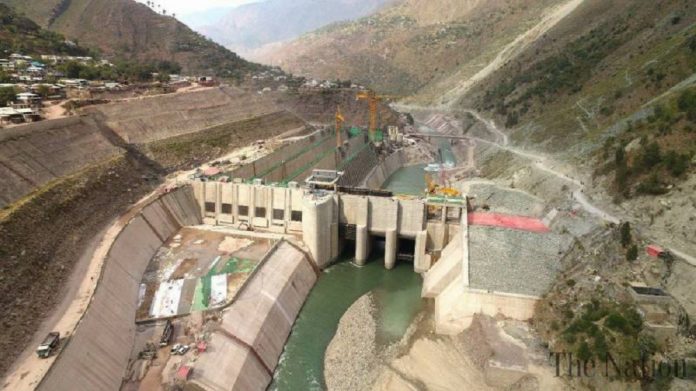Director General Inter-Services Public Relations (ISPR) Lt. General Ahmed Sharif Chaudhry on Wednesday said that India targeted the Noseri Dam near the Neelum-Jhelum Hydropower Project, causing damage to critical infrastructure and endangering thousands of civilians, state-run news agency APP reported.
“Targeting water reservoirs is not only illegal under international laws but also poses a humanitarian risk,” Lt Gen Sharif questioned India’s motives, specifically targeting a vital water resource of Pakistan.
“Does international and war law permit targeting the water reserves of a country?” he asked during a media briefing.
The attack, which took place during the night between May 6 and 7, was condemned by Pakistan as an “unprovoked” act of aggression. In retaliation, the Pakistan Air Force responded swiftly, shooting down five Indian fighter jets, including three Rafale jets and one MiG-29 aircraft, in areas such as Bathinda, Jammu, and Srinagar.
The Pakistani military also launched counterattacks on Indian positions, destroying key military infrastructure and forcing Indian soldiers to retreat in certain sectors.
The attack on a dam near to the Neelum-Jhelum Hydropower Project has heightened concerns over the security of critical infrastructure in the region, with Pakistan reaffirming its commitment to safeguarding such assets against any further aggression.
Last month, India announced its decision to suspend the Indus Water Treaty, signed in 1960, following a militant attack on tourists in the Pahalgam area of Indian Illegally Occupied Jammu and Kashmir (IIOK) on April 22, 2025. The attack, which claimed the lives of at least 28 tourists, has further escalated tensions in the region.
After suspending the Indus Waters Treaty, India also started work on flushing silt at two of its dams in the held-Kashmir valley, Reuters reported on Monday.
India also stopped the flow of water across the border through the Chenab river. Since Sunday morning, the water flow has been throttled by almost 90% of the usual volume that passes to Pakistan, according to Muhammad Khalid Idrees Rana, spokesman for Pakistan’s Indus River System Authority.
“It’s unprecedented,” Rana said, adding that India typically holds some water daily for electricity generation but releases it every few hours.
Rana also said the water could be released later as India doesn’t have capacity to store it permanently.




